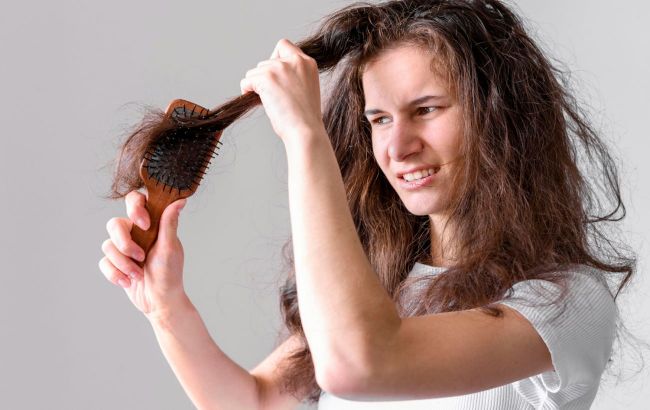8 perfectly normal reasons why you might lose a lot of hair
 Why hair falls out and how to prevent it (photo: Freepik)
Why hair falls out and how to prevent it (photo: Freepik)
Hair loss is a condition that can cause concern. However, it can be a normal occurrence that does not require treatment. It may simply be a matter of reviewing one's lifestyle, according to HuffPost.
Why does hair fall out
Hair loss is a common issue for both men and women, with individuals typically losing around 50 to 100 hairs per day, according to trichologist Penny James.
The human scalp contains over 100,000 hair follicles, and hair can be in either a growth or resting phase. The final stage of the hair growth cycle is when the hair falls out, making way for new hair. This cycle continues as long as no imbalance could alter the amount of hair you lose.
However, if you suddenly notice more hair on your pillow or in the shower drain than usual, it could be a problem.
Insufficient nutrients
Dermatologist Del Campo explains that a lack of nutrients, including iron, zinc, fatty acids, and vitamin D, can lead to hair loss.
These nutrients play a crucial role in maintaining the health of hair follicles and supporting hair growth cycles.
The expert recommends consuming two sources of animal protein per day (such as eggs, fish, chicken, or dairy products), as they contain all the essential amino acids.
Hair loss can slow down when your diet is adjusted, and you receive all the necessary nutrients and proteins.
Insufficient hair and scalp washing
If you don't wash your hair frequently, you may notice more hair in the shower drain. This could be due to a buildup of sweat, oil, dry shampoo, and other styling products.
Maintaining a healthy scalp and hair cleanliness can help preserve hair follicles, leading to less irritation and hair loss.
Seasonal changes
Increased vitamin D levels due to long days and warm weather stimulate new hair growth, leading to the shedding of old hair. Weather changes can also alter your diet, and the nutrients you consume can affect hair loss.
High temperature or illness
A high temperature, surgical intervention, severe illness, or other physical stresses can cause a temporary condition called telogen effluvium. This condition causes hair to transition more quickly from the growth phase to the resting phase.
After an illness, the body typically needs rest and recovery.
Severe stress
Stress triggers excessive cortisol hormone activity, which can lead to additional hair loss. If you experience hair loss, it usually occurs three to six months after severe stress.
Maintain a healthy, balanced diet, exercise regularly, and get enough sleep.
Hormonal changes
Hormonal changes in both women and men can lead to temporary or permanent hair loss.
Young mothers often notice hair loss around three months after childbirth when their estrogen levels drop. When hormone levels return to normal, hair usually regrows (around 6-9 months after childbirth).
Thyroid gland issues can also disrupt the hair growth cycle.
New medications
Antidepressants and non-steroidal anti-inflammatory drugs can cause hair loss.
If you notice increased hair loss after starting a new medication, talk to your doctor about alternatives.
Aggressive styling
Excessive use of hot tools and other styling methods can lead to hair breakage and follicle damage, causing temporary or even permanent hair loss.
It's advisable to limit the use of hot tools to 2-3 times per week and use them at the lowest temperature possible.
We also wrote about how to take care of your hair to avoid damaging it.

